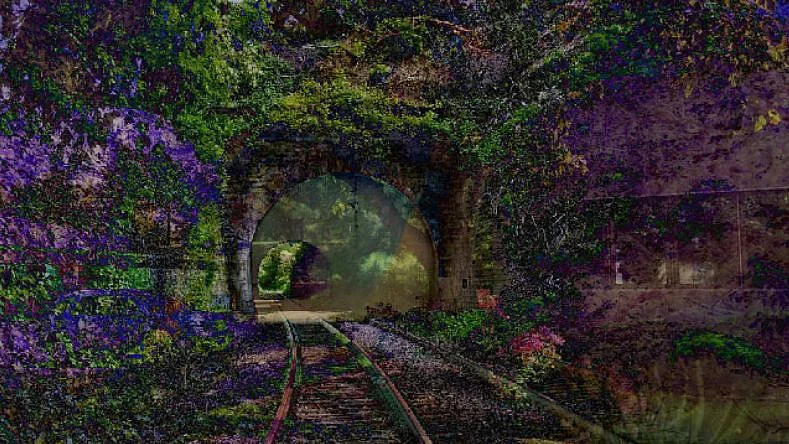Artificial Intelligence Can’t Own Rights to Its Art, Says US Copyright Office
A three-person board found that the AI-created image didn't include an element of 'human authorship."

advertisement
In a significant ruling on 14 February, the United States (US) Copyright Office rejected a request to let an artificial intelligence (AI) algorithm called 'Creativity Machine' copyright a piece of art it created.
The decision called the "nexus between the human mind and creative expression" a vital element of copyright. It also noted that "courts have been consistent in finding that non-human expression is ineligible for copyright protection."
'A Recent Entrance to Paradise'
The AI's developer Steven Thaler described the artwork, titled 'A Recent Entrance to Paradise,' as a simulated near-death experience in which the algorithm reprocesses pictures to create hallucinatory images and a fictional narrative about the afterlife, The Verge reported.
Thaler tried to copyright the artwork on behalf of the algorithm in 2018. However, the Copyright Office refused to register the claim, finding that it “lacks the human authorship necessary to support a copyright claim.”
He subsequently requested that the office reconsider its initial refusal to register the artwork, arguing that “the human authorship requirement is unconstitutional and unsupported by either statute or case law.”
This was also rejected in 2020.
Notably, federal judge in San Francisco in 2016 declined to give a macaque monkey the right to his famous selfie in Indonesia in 2011.
Animal rights organisation People for the Ethical Treatment of Animals (PETA) filed a lawsuit asking a US federal court in San Francisco to give six-year-old Naruto, a crested macaque, the ownership of the famous photographs that he took himself a few years ago.
The judge ruled that the macaque monkey cannot be declared the copyright owner of the self-portraits.
In a statement, PETA said, "The US Copyright Act grants copyright ownership of a 'selfie' to the 'author' of the photograph, and there's nothing in the law limiting such ownership on the basis of species."
(With inputs from The Verge and IANS.)
(At The Quint, we question everything. Play an active role in shaping our journalism by becoming a member today.)